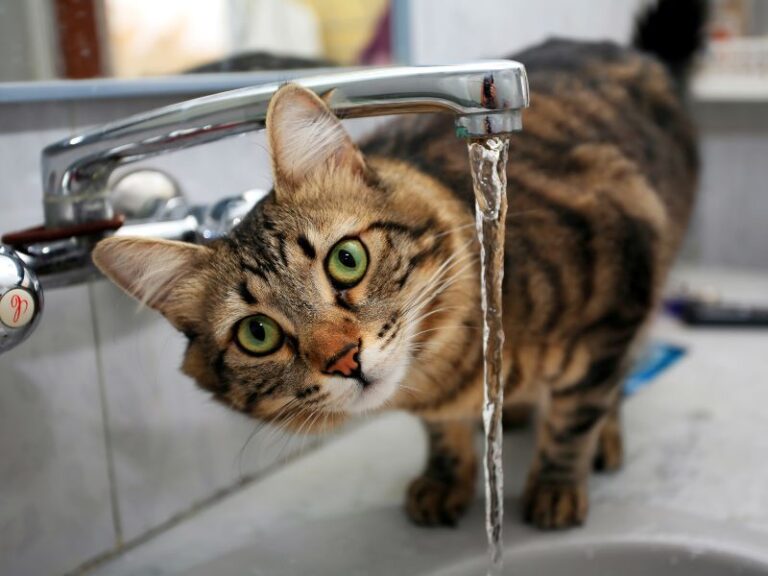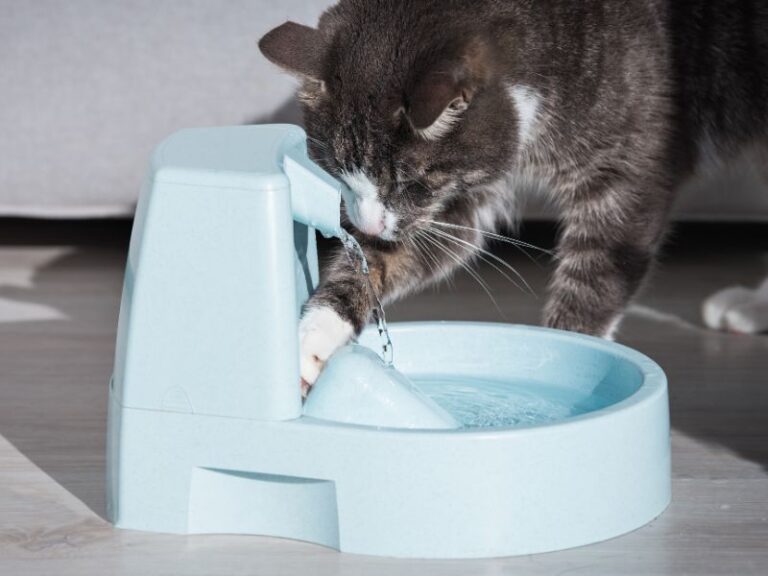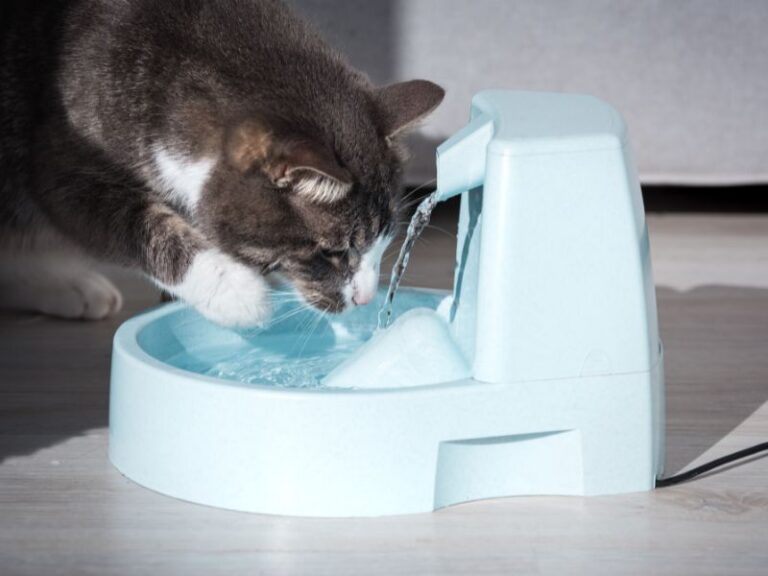Table of Contents
ToggleRecognizing the Signs of a Pregnant Cat
Bringing a new life into the world is a remarkable journey, and if you’re a cat owner, you might find yourself wondering whether your feline companion is expecting kittens. Cats, like humans, display several telltale signs when they are pregnant. Being able to recognize these signs early can help you provide the best care for your pregnant cat and her soon-to-arrive kittens.
When a cat becomes pregnant, her body undergoes a series of changes, both behavioral and physical. These changes can vary from cat to cat, but there are some common signs to look out for:
Behavioral Changes
In the early stages of pregnancy, you might notice subtle changes in your cat’s behavior. She might become more affectionate and seek extra attention from you. On the other hand, some cats might become a bit more reserved and prefer solitude. Keep in mind that these behavioral changes can be influenced by your cat’s personality, so it’s important to observe any deviations from her normal behavior.
Changes in Appetite
Pregnant cats often experience fluctuations in appetite. Some cats might have an increased appetite, while others might seem to eat less than usual. It’s important to monitor your cat’s eating habits and consult your veterinarian if you notice any drastic changes.
Nesting Behaviors
As the pregnancy progresses, you might observe nesting behaviors in your cat. She might start looking for cozy and secluded spots to create a nest. This is a natural instinct as she prepares to give birth. Providing a comfortable and safe space for her to nest can help alleviate her stress and ensure a smooth pregnancy journey.
Physical Changes
Physically, pregnant cats undergo noticeable changes that become more evident as the pregnancy advances:
- Swollen Nipples: Around two to three weeks into the pregnancy, a cat’s nipples might become enlarged and pinkish. This is one of the earliest physical signs of pregnancy.
- Abdominal Enlargement: As the kittens develop, you’ll likely notice your cat’s abdomen becoming larger and more rounded. This change becomes more pronounced as the pregnancy progresses.
- Weight Gain: Along with abdominal enlargement, pregnant cats tend to gain weight. However, it’s important to ensure that the weight gain is steady and not excessive, as obesity can lead to complications during pregnancy.
Recognizing these signs can give you a good indication that your cat might be pregnant. However, it’s important to note that these signs are not definitive proof of pregnancy. To confirm your suspicions and ensure the best care for your pregnant cat, it’s recommended to consult a veterinarian.
Visiting the Veterinarian for Confirmation
While your observations and understanding of the signs and symptoms are valuable, a professional veterinarian’s expertise is essential to confirm your cat’s pregnancy. A veterinarian can provide accurate information, guide you through the pregnancy journey, and address any concerns you might have.
Importance of Professional Guidance
A veterinarian’s knowledge and experience can make a significant difference in ensuring the health and well-being of your pregnant cat and her future kittens. Visiting a veterinarian allows for:
- Accurate Confirmation: While you might notice many signs of pregnancy, a veterinarian can confirm it definitively through a physical examination. They might use techniques like palpation or ultrasound to ascertain pregnancy.
- Health Assessment: A veterinarian will assess your cat’s overall health and address any potential complications. They can recommend necessary vaccinations and treatments to ensure a smooth pregnancy.
- Tailored Advice: Each cat’s pregnancy is unique. A veterinarian can provide personalized guidance based on your cat’s breed, age, health, and other individual factors.
Preparing for the Veterinary Visit
Before the visit, prepare a list of observations and questions to discuss with the veterinarian. Mention any behavioral or physical changes you’ve noticed, such as changes in appetite, nesting behaviors, or weight gain. The more information you provide, the better the veterinarian can assess your cat’s condition.
After Confirmation: Moving Forward
Upon confirmation of your cat’s pregnancy, your veterinarian will offer advice on proper care and nutrition during the pregnancy. They might recommend dietary adjustments, supplements, and exercise routines to support your cat’s health.
If you had any concerns about your cat’s health or well-being, this is also the time to address them. The veterinarian can provide insights and recommendations to ensure a comfortable and healthy pregnancy journey.
Remember, your veterinarian is your partner in this journey. Regular check-ups throughout the pregnancy allow them to monitor your cat’s progress, address any potential issues, and provide timely interventions if needed.
Understanding the Duration of Cat Pregnancy
The journey of cat pregnancy is a fascinating one, and understanding how long it lasts can help you prepare for the upcoming arrival of adorable kittens. On average, a cat’s pregnancy, also known as gestation, typically lasts around 63 to 65 days. However, this can vary based on several factors, including the cat’s age, breed, health, and individual characteristics.
Factors Influencing Pregnancy Duration
- Breed: Different cat breeds have varying gestation periods. While the average is around 63 to 65 days, some breeds might have slightly shorter or longer pregnancies.
- Age: Younger and older cats might have slightly different pregnancy lengths. Younger cats might have shorter pregnancies, while older cats might have longer ones.
- Health: A cat’s overall health plays a crucial role in the duration of her pregnancy. Cats in optimal health tend to have pregnancies that follow the average timeline.
- Litter Size: Interestingly, the number of kittens in a litter can also influence pregnancy duration. Cats carrying larger litters might have slightly shorter pregnancies, while those with smaller litters might have longer ones.
- Environmental Factors: Environmental conditions can play a role as well. Cats living in stressful or unstable environments might experience variations in pregnancy duration.
It’s important to remember that while the average duration of cat pregnancy is a helpful guideline, there can be natural variations. Some cats might give birth a bit earlier or later than the average range. As your cat’s pregnancy progresses, you can work with your veterinarian to monitor her health and the development of the kittens.
During the latter stages of pregnancy, it’s a good idea to create a comfortable and quiet space for your cat to give birth. Provide a nesting box with soft bedding where she can feel safe and secure as she prepares to bring her kittens into the world.
Home Care for a Pregnant Cat
As your cat’s pregnancy progresses, providing her with proper home care becomes increasingly important. Creating a comfortable and stress-free environment can contribute to the health and well-being of both your pregnant cat and her future kittens.
Proper Nutrition
During pregnancy, your cat’s nutritional needs change. It’s crucial to provide her with a balanced and nutritious diet that supports her and her developing kittens. Consult your veterinarian for dietary recommendations, as they might suggest a high-quality commercial cat food designed for pregnant or nursing cats. These foods are formulated to provide the necessary nutrients, including increased protein and calories.
As the pregnancy advances, your cat’s appetite might fluctuate. Be attentive to her eating habits and make adjustments as needed. Fresh water should always be readily available.
Comfort and Safety
Creating a comfortable and safe space for your pregnant cat is essential. Set up a quiet and cozy nesting area where she can relax and prepare for the birth of her kittens. A nesting box with soft bedding, placed in a secluded spot, can provide her with the security she needs.
Minimize stress in her environment. Cats are sensitive to changes, so try to maintain a consistent routine and avoid loud noises or sudden disruptions.
Regular Veterinary Check-ups
Continue with regular veterinary check-ups throughout the pregnancy. Your veterinarian will monitor your cat’s health, provide guidance on care, and address any concerns. These check-ups allow for timely interventions if needed and ensure that both your cat and her kittens are progressing well.
Preparing for Labor and Delivery
As the due date approaches, pay extra attention to your cat. Signs of impending labor include restlessness, increased nesting behaviors, and even a decrease in appetite. Have your veterinarian’s contact information handy in case you need assistance during labor.
Ensure you’re well-informed about the process of cat labor and delivery. Understanding what to expect can help you provide the necessary support to your cat during this time.
After the Birth
Once the kittens are born, continue providing a supportive environment. Make sure the nesting area remains clean and comfortable. Observe the nursing process and monitor the kittens’ growth and development.
Gradual Socialization
After the kittens are a few weeks old, you can gradually start socializing them with human interaction. This helps the kittens become comfortable around people, which is important if you plan to find them loving homes.
Remember, providing attentive care during your cat’s pregnancy journey is key to ensuring the health and happiness of both her and her kittens. As we conclude this article, we’ll explore what to expect during the final stages of pregnancy and the exciting moment of kitten arrival.
Final Words
Welcoming kittens into your home through your pregnant cat’s journey is a remarkable experience. By recognizing early signs, understanding pregnancy’s duration, and offering proper care, you ensure a smooth and comfortable journey for your cat and her kittens.
Remember, recognizing behavior changes and physical shifts is key. Veterinarian confirmation provides vital guidance while creating a nurturing home environment that supports your cat’s pregnancy. As you anticipate the arrival of new life, cherish this incredible journey together.






